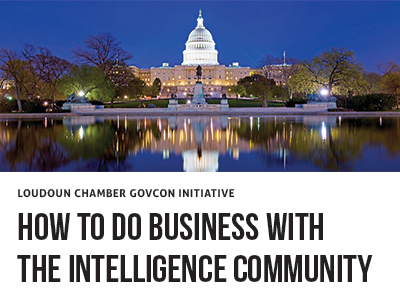
GovCon: Your Best Bet for a Successful Protest
Thank you to Jay Gruendl, VP/Director of Contracts, Corporate Results, Inc.
To learn more about the Loudoun GovCon initiative, click here.
When our customers are considering whether to protest an award we make sure they know their chances are best when the protest is based on more than just disagreement with the evaluation. Successful protests are usually based more on the process than the evaluation. Per the GAO, the most common reasons for sustaining a protest are:
- Failure to follow the solicitation
- Inadequate documentation
- Unequal treatment of offerors
- Unreasonable price or cost evaluation
A recent protest, CSR Inc B-413973;B-413973.2, demonstrates the success of a process argument over an evaluation argument; it even touches on the first three reasons listed above. In this procurement CSR Inc. protested a Blanket Purchase Agreement (BPA) award to Booz Allen Hamilton (BAH) on the grounds that the Agency’s past performance evaluation was “unreasonable and disparate”. CSR also challenged the Agency’s evaluation of the other award factors (tech understanding, key personnel, mgmt. approach, etc) as well as the Agency’s documentation of the best-value trade off.
Past Performance
In the past performance evaluation the Agency considered the references submitted by each bidder but they also considered a BAH past performance from CPARS (Contractor Performance Assessment Reporting System) which BAH had not submitted. The RFP stated that the Agency may consider data from other sources, including from Government repositories, so this action was consistent with the solicitation (bullet one above). CSR protested because CSR had relevant past performances on CPARS that the Agency did not consider; therefore, the Agency had not treated the offerors equally (bullet three above). The GAO agreed with CSR and this portion of the protest was sustained.
Evaluation of Other Award Factors
CSR challenged their evaluations under the other award factors, but the GAO consistently stated that the record supported (bullet two above) that the Agency had acted appropriately. This portion of the protest was denied.
Best Value Determination
CSR protested the Agency’s best-value tradeoff determination on the grounds that it was inadequately documented and therefore unreasonable. The GAO noted that both BAH and CSR received the same adjectival rating for Corporate Experience but the Agency kept referring to BAH’s superior Corporate Experience when discussing the best value trade off. The GAO stated, “Although quotations with the same adjectival ratings are not necessarily of equal quality, a source selection official’s finding that one quotation is technically superior to another, notwithstanding equal ratings, must be adequately documented.” (bullet two above) This portion of the protest was sustained.
GAO’s recommended corrective action was for the Agency to reevaluate CSR’s past performance and adequately document the basis for any price/technical tradeoff determinations.
Additional note
This protest demonstrates the advantages of including multiple, reasonable challenges. It helps avoid a quick dismissal due to one challenge having an easy rebuttal or technicality. It also facilitates the possibility of a broader look at the record which often reveals further issues that could not have been known at the time of protest. Many sustainments or corrective actions result from secondary findings during the proceedings.
Final take away
The two challenges that were based on process were upheld by the GAO and the challenge based on evaluation was denied. As the GAO often says, “An offeror’s disagreement with the agency’s evaluation is not sufficient to render the evaluation unreasonable.” Your best bet for a successful protest is to include all reasonable challenges, focus on the process instead of the evaluation and look for issues such as the four stated above.
Thank you to Jay Gruendl, VP/Director of Contracts, Corporate Results, Inc.
Join us at our upcoming event on Tuesday, May 16, 2017 “How to do Business with the Intelligence Community” – Register Here

